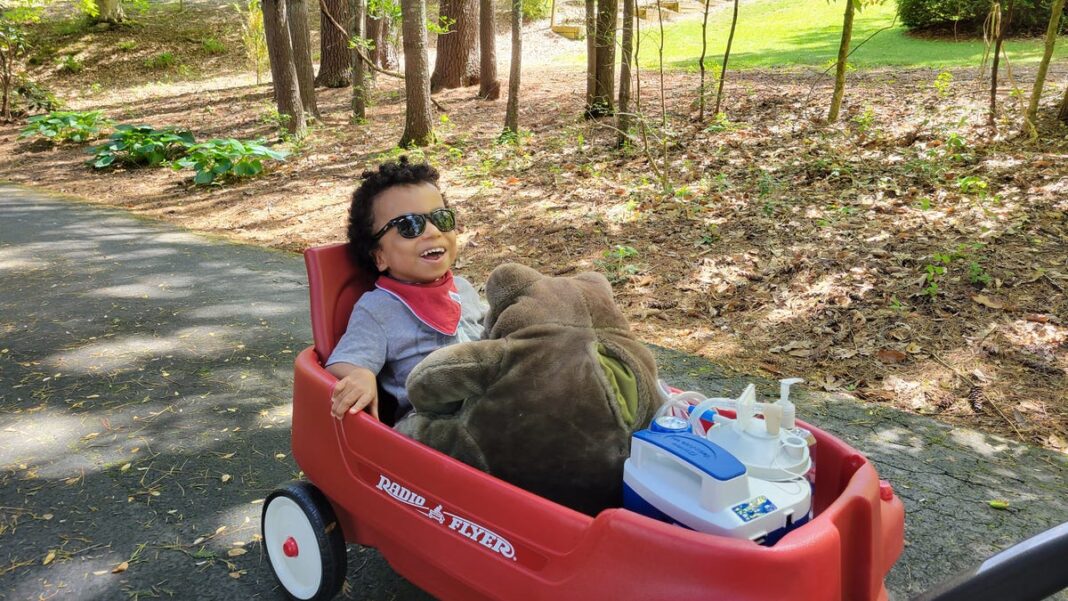Opinion: Hurricanes like Milton are deadlier for disabled individuals. We must prioritize their needs.
My 6-year-old son, who has a disability, requires constant care. During Hurricane Helene, ensuring power for his suction machines was our top priority.
A study by the National Council on Disability reveals that my 6-year-old son faces a risk of death or serious injury during natural disasters that is four times higher than that of his non-disabled peers. Our family nearly faced this horrifying reality during Hurricane Helene.
As Hurricane Helene approached our home in Arden, North Carolina (a quaint town just south of Asheville), I anxiously monitored my son on the video feed. His tracheostomy—an operation that inserted a tube into his trachea for breathing—requires him to have ongoing care.
When the lights flickered in our house, I had just finished charging his suction machines that are essential for clearing his airway. My partner usually takes over monitoring our son at 2 a.m. After a night with the power still intact, I woke up to find the lights out, and our phone and internet down.
Taking a deep breath, my partner and I put our emergency plan into action.
All paths to the hospital were blocked
We’ve faced power outages before, but this storm’s impact felt particularly severe.
Our highest priority was keeping the suction machines charged. Whenever their batteries ran low, we recharged them in our vehicle. But as the battery life dwindled and our gas supplies decreased, we realized we urgently needed a different power source.
Since hospitals are among the few public places equipped with generators, my partner decided to drive to the nearest hospital on Saturday morning to recharge one of the machines. Upon his return, he shared troubling news—devastation everywhere, and all routes to the hospital were blocked. Our hearts sank, and panic began to rise.
Our alternative was to head to our local fire station. We loaded our van and navigated around downed power lines and fallen trees to reach the Avery’s Creek station.
Upon arrival, a firefighter greeted us with relief: “Yes, we have generators, and you can charge your equipment here.”
Emotion filled my eyes, and the accumulated stress began to melt away. We could finally breathe easy—our son was going to be alright.
Lessons from Hurricane Katrina
Unfortunately, many individuals with disabilities struggle to access necessary assistance during a natural disaster, leading to tragically fatal outcomes.
This was evident during Hurricane Katrina in 2005, where older adults and people with disabilities constituted a significant portion of those who perished or were hurt. This situation could change if we were to amplify the voices and needs of disabled individuals in our disaster response strategies.
As climate change intensifies and storms like Hurricane Helene wreak havoc on our communities, disabled individuals continue to raise their voices and advocate for their right to survive.
We have a critical decision to make: Will we choose to listen and act by ensuring their safety and survival ahead of the next environmental crisis?
Beth Connor lives in Arden, North Carolina, with her partner and their medically complex 6-year-old son. She works as a professional fundraiser for an affordable housing nonprofit while being a dedicated mother and caregiver.

